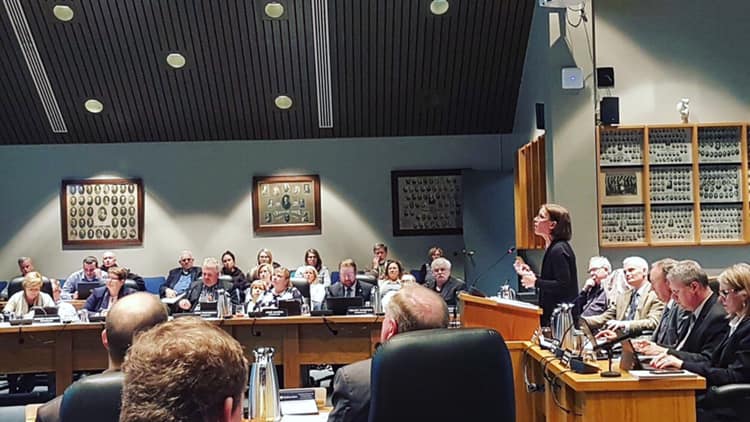
Public Health in Chatham-Kent is facing some uncertain times, after some recent announcements handed down by the Provincial Government.
The Chatham-Kent Board of Health, comprised of municipal councillors and community representatives responsible for overseeing the operations of CK Public Health, is awaiting more information from the Province regarding the recently announced provincial budget and the impact suggested changes to the delivery of Public Health could have on CK residents.
From the existing 35 health units, the Province has created 10 regional health entities, merging CK Public Health with Lambton, Windsor-Essex County, Middlesex-London and Southwestern, Public Health officials said in a press release.
The new service area spans over 14,500 square kilometres and is responsible for meeting the needs of nearly 1.3 million residents.
Although hopeful that the merger could allow for CK Public Health to build on relationships with neighbouring health units, without the provision of specifics regarding program and service delivery, the implications that this could have for Chatham-Kent as a unique, rural community are still unknown.
“Addressing local needs and responding to those needs in a way that makes most sense to the community, has always been at the core of public health,” stated Chatham-Kent Board of Health Chair, North Kent Coun. Joe Faas.
“By merging different health units and mandating that they report to one regional Board of Health, it weakens their overall ability to meet local needs in a way that our community requires those needs to be met. Existing complications around things like transportation and access could be magnified when the service area is expanded so significantly in such a short period of time.”
The new funding structure will also mean heavy implications for the Municipality of Chatham-Kent.
Now, municipalities fund a minimum of 25% of public health services and the Province funds the other 75%.
The new funding arrangement sees the municipalities covering 30% as of April 1, 2019, 30% as of April 1, 2020 and 40% as of April 1, 2021.
For Chatham-Kent, this will result in the need for an additional $900,000 from the Municipality for the 2020/2021 budget year
Faas believes that cutting the provincial share of funding with no prior communication or warning could lead to a decrease in the vital services CK Public Health is able to provide to the community, with vulnerable populations throughout Chatham-Kent being at the highest risk for negative impact as they rely most heavily on these local services.
CK Public Health, which uses a population health approach to reduce the factors that cause disease, injury, and death in the community, is operating ‘business as usual’ until further details from the Ministry are shared.
“The CK Public Health staff don’t have the luxury of time when it comes to being able to pause the delivery of programs and services and process exactly what this means for them or the work that they do,” Faas said.
“Much of that work is dedicated to keeping people healthy, productive, and out of the health care system by delivering on five core activities: population health assessment and surveillance, health promotion & policy development, health protection, disease prevention, and emergency management.”
A presentation on the impending changes was made to Chatham-Kent council on Monday night by General Manager of Community Human Services, April Rietdyk.
The presentation highlighted the substantial return on investment that public health uniquely provides.
“Investing in Public Health is inarguably one of the most fiscally responsible decisions any government could make,” stated Faas.
“For every dollar that is spent on immunizing children, for instance, more than $16 are saved in additional health care costs – that’s a ROI of about 1500%.”
Similar positive investment returns can be found across public health’s many programs and services, including dollars invested in mental health and addictions, workplace health and safety and early childhood development.
In many cases, these modest investments save upwards of 20 times as much in future healthcare costs.
Echoing statements made during the presentation, Faas believes that the ‘invisibility’ of CK Public Health may have lead to the work that it takes to keep them running going unrecognized and, in turn, undervalued.
“The general public may not always be quick to recognize the work that is being done in public health because when it is properly funded with the right supports in place, it runs the way that it is supposed to and the system as a whole is nearly invisible,” Faas said.
“CK Public Health focuses their efforts ‘upstream’, preventing health disasters before they ever occur. This approach saves lives, of course, but it also saves money. That old saying ‘an ounce of prevention is worth a pound of cure’ rings as true today as ever before.”
For more details, visit: https://ckphu.com/















